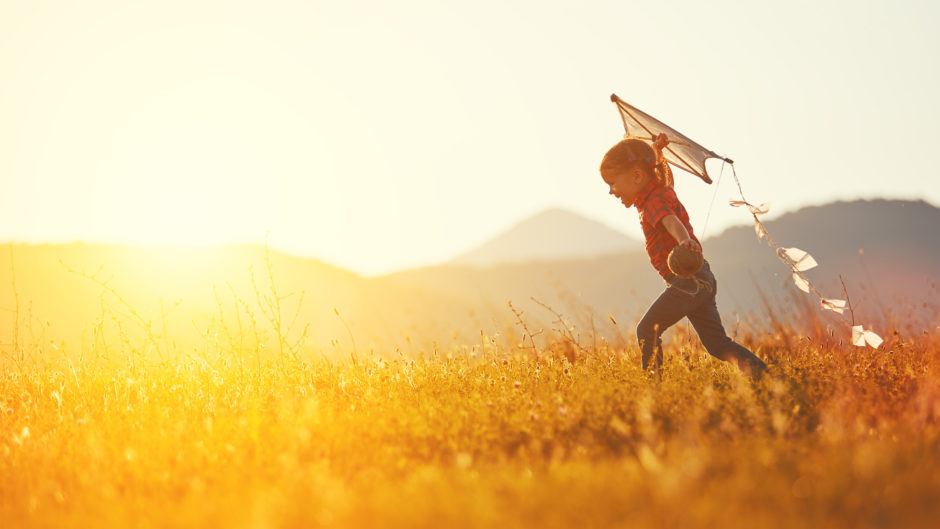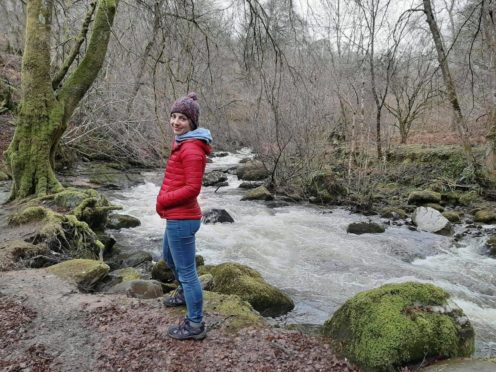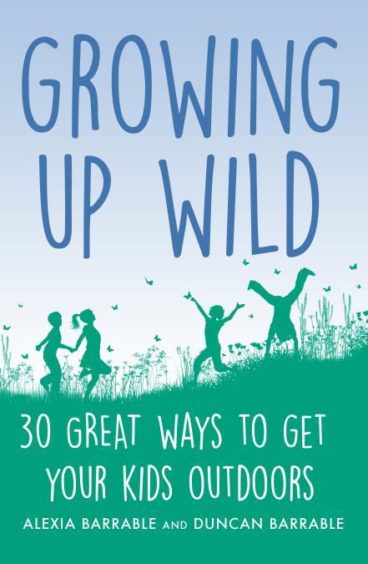For many people. a move from Greece to Scotland might result in a period of hibernation as they adjusted to the somewhat fresher climate. Not so for Dr Alexia Barrable, who knew that the best way to adjust to the colder weather was to get out there and embrace it.
Alex, co-author of Growing up Happy and Growing up Wild ,is a lecturer with the School of Education and Social Work at the University of Dundee. She is especially interested in the importance of nature for a balanced childhood and established the #100DaysOfOutside challenge which helped her family make the transition from life in Greece to the Scottish winter.
“Nature has been part of my life from a very early age,” she explains, “I grew up in Greece and my dad was a nature lover. From an early age we had sick animals recuperating in our house. My brothers and I grew up with a strong connection to the outdoors.”
The importance of that connection was underlined again when Alex became a mother herself: “When our first son joined our family, and then the second one pretty soon after, I struggled with the demands of motherhood. One of the ways I found to help me, and them, was going outside. That was the year my husband and I came up with the 100 days of outside, which is the core of our book Growing Up Wild.”
Through her research and her own experiences as a mum to two boys, she has found that there are two sides to the benefit of spending time outside for ourselves and our children. “There are two sides to this: nature contact and nature connection. Both of them are beneficial, and they are interrelated, but the benefits of the second are much more enduring. So, nature contact, essentially being in a natural space, has an impact on our body at the physiological level. Our heart rate stabilises, our blood pressure drops, our body produces less cortisol (stress hormone). This is essentially the effect of our parasympathetic nervous system (our rest and digest system) taking over. With the relaxation response activated, the benefits are also psychological, so we feel better, ruminate less etc. There are also cognitive benefits, in that our attention is restored. Overall,” she says, “being in nature is great for us.”
She goes on to explain that nature connection, which is her own particular area of interest, “describes our positive relationship with the non-human natural world. This is much more than just being outside: this is about nurturing our relationship and one-ness with nature. NC happens in different ways, it is not just about finding ourselves in natural environments and tends to take longer to build (just like a normal relationship does). Part of my research is about trying to find out what it is, about our different interactions with the non-human natural world, that supports this relationship.
Getting out there

For anyone looking for a bit of inspiration for getting their kids outdoors, Alex has the following advice: “Find a place and make it yours. So it is not about visiting different outdoor spaces each week, but return to the same space and let children explore it, change it, ‘own’ it. Also, nature does not have to be an unspoilt green paradise, a local park will have enough natural elements to explore. Even interactions with nature indoors are important and count, so sowing and looking after plants, for example, or looking after animals.”
“Sometimes, being in the elements, getting cold and wet, can make the feeling of getting cosy back at home even greater. Short interactions with nature can be great in winter.” She suggests taking a 20 min walk each day, noticing how the world around us changes with the seasons. “It is about regular interaction, and about finding something you enjoy as a family, rather than a forced expedition.”
Alex also welcomes the Curriculum for Excellence’s focus on outdoor learning. “We are incredibly lucky to be in a place where it is so valued,” she says. “Teachers need to be supported to gain confidence in teaching outdoors, in order to be able to deliver a lot of the curriculum outdoors, and again, there are many tools to use there. Outdoor learning can certainly be a way to raise attainment, and increase wellbeing.
During lockdown, with the help of her husband and sons, Alex published the comic Staying Wild, Inside and Out which is full of accessible ideas for engaging our children in the natural world.
An enduring legacy
According to Alex, moving closer to the natural world was a source of solace for many people, “We need to recognise the value of nature in supporting our mental health and keep looking at what the barriers are in making the most of our relationship with the natural world. In many cases, those barriers are systematic, and there exists great inequalities in how able we are to access nature. These need to be tackled at a high level. One of the elements of Scottish education that has been a source of pride, and envy from elsewhere, has been residential outdoor centres. There is evidence, from Outward Bound, for example, that these places have a lasting impact on children’s and young people’s trajectories. It is a shame to see that these centres are currently in danger, and there is currently a campaign to support these #SaveYourOutdoorCentres.”
“I think there was a real shift back in the 1980s in people’s perspective about the importance of exercise and it became mainstream to add a jog to your day for a lot of people,” she continues. “I think it is nature’s turn. We are clearly recognising the positive effect of our interaction with the natural world, and it is becoming more mainstream to look at engaging with nature as part of our daily routine, including in education. I am keen to keep pushing that way, and to keep producing research that will help elucidate how best we can harness the benefits of nature contact and connection.











